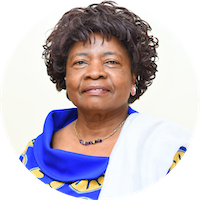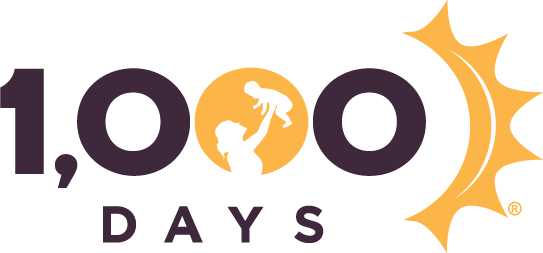A Devex event in partnership with 1,000 days
Tackling malnutrition:
Improving both food and health systems
May 12, 2021
9:30 a.m. ET | 3:30 p.m. CET
WatchAbout the Event
Each year, malnutrition kills more children than AIDS, malaria, and tuberculosis combined. Malnutrition is the leading risk factor for death in children globally: accounting for 45% of all child deaths, yet these losses are almost entirely preventable.
Even before the COVID-19 pandemic, nearly 1 in 3 people around the world had at least one form of malnutrition. Based on current trends, this number is set to rise to 1 in 2 by 2025, and the world risks backsliding on nutrition gains, with irreversible impacts on mortality and lost potential. By 2022, the impact of COVID-19 could result in an additional 11.9 million severely malnourished children. In many parts of the world, malnutrition will likely be the most deadly and long-lasting consequence of the COVID-19 pandemic – killing more people than the virus itself.
In order to tackle malnutrition, an overhaul of the world’s food and health systems is needed. The solutions to malnutrition are multi-sectoral and require close collaboration between food and health systems. To solve the global nutrition crisis equitably, we must tailor our approach to focus on food and health.
On May 12, 2021, Devex hosted an online event in partnership with 1,000 Days as part of the broader Future of Food Systems series. The event explored the challenges facing many families in low- and middle-income countries and how we must go beyond simply increasing access to nutritious food; we must also get better at integrating health and nutrition.
Explore the series to learn how food systems can work better, making food fair and healthy for all.
Schedule
9:30 a.m. ET
Welcome & introduction by Teresa Welsh, Devex Senior Reporter
9:35 a.m. ET
Solution spotlight with Roger Mathisen, Alive & Thrive Regional Director, South East Asia
9:45 a.m. ET
Panel discussion with:
-Heather Danton, Project Director, USAID Advancing Nutrition, JSI
-Ruth Oniang’o, Nutritionist, Kenyan professor and former member of Parliament
-Meera Shekar, Global Lead, Health, Nutrition & Population, The World Bank
-Moderator: Teresa Welsh, Senior Reporter, Devex
10:30 a.m. ET
Closing remarks by Teresa Welsh, Devex Senior Reporter
Speakers

Heather Danton
Project Director for USAID Advancing Nutrition, JSI Research & Training Institute, Inc.
As Project Director for USAID Advancing Nutrition at JSI Research & Training Institute, Inc, Heather provides technical support to and implementation of nutrition interventions across sectors and disciplines for USAID and its partners. Heather previously held the position of Director, Food Security and Nutrition on the Strengthening Partnerships, Results and Innovations for Nutrition Globally (SPRING) project, also led by JSI Research & Training, Institute, Inc. Prior to joining SPRING, Heather served as Senior Director of Food Security and Livelihoods for Save the Children Federation Inc. She has over 30 years of experience in Asia, Africa and Latin America in the area of food security and livelihoods and specializes in the design, implementation, monitoring and evaluation of programs that integrate economic growth and agriculture with nutrition. Heather holds a Master of Science degree in Vegetable Crops from Cornell University and a Bachelor of Science degree in Biology from Stanford University.

Roger Mathisen
Regional Director, Alive & Thrive Southeast Asia
Roger Mathisen is a nutritionist and public health manager with two decades of experience working in non-governmental organizations, the UN, academic institutions, and the private sector. Roger is the Southeast Asia Director for Alive & Thrive, an initiative managed by FHI Solutions (FHI 360) and currently funded by the Bill & Melinda Gates Foundation, Irish Aid, and other donors. Alive & Thrive is an endorsed technical assistance provider to the Association of Southeast Asian Nations’ (ASEAN) health cluster and member states. Before joining Alive & Thrive, Roger worked as a nutrition specialist for UNICEF in Malawi and Viet Nam from 2004-2014, and provided technical capacity and emergency support in Ethiopia, Zimbabwe, Sri Lanka, Myanmar, and the Philippines. He has a Master of Science in Clinical Nutrition from the University of Oslo and continuing education from University of Ulster, Harvard Business Publishing and the London School of Hygiene and Tropical Medicine in Applied Nutrition, Research Design, Organizational Management and Health Policy and Financing. Roger is based in Hanoi, Viet Nam.

Ruth Oniang'o
Founder and leader, the Rural Outreach Programme; Editor-in-Chief, Africa Journal of Food, Nutrition and Development
Dr. Ruth Oniang’o is a professor, researcher, African Food Prize Laureate and has been honored by her own government of Kenya for her work to eradicate poverty and hunger in Kenya, by working with smallholder farmers for the past 3 decades and helping to formulate food and nutrition security policies. She received Kenya’s Silver Star and Distinguished Service Medals. Ruth founded Rural Outreach Africa (ROA) in the early 1990s and continues to be a clear and profound voice in research for development as an international consultant and speaker. As the founder and editor of the African Journal of Food, Agriculture, Nutrition and Development (AJFAND), Ruth seeks to improve policy and decision-making through the dissemination of significant scientific findings and emerging technologies in the field, and thus serving as an influencer on the continent and globally. The journal marks 20 years this 2021 since inception.

Meera Shekar
Global Lead, Health, Nutrition & Population, The World Bank
Meera Shekar is Global Lead for nutrition with the World Bank’s Health, Nutrition and Population Global Practice. In this capacity she provides leadership, support and policy advice on the Bank’s nutrition portfolio across the spectrum of undernutrition and obesity, managing key partnerships such as the Power of Nutrition, and firmly positioning nutrition within the Global Financing Facility for RMNACH and the Bank’s new initiative on Human Capital. Over the last several years, she has led the repositioning of the nutrition agenda that led to the global Scaling-up Nutrition (SUN) movement, and was a founding member of the Catalytic Financing Facility for Nutrition developed in partnership with the Milken Institute, that evolved in to “The Power of Nutrition”. Meera serves as the chair for the SUN executive committee and has been one of the principals for the emerging aid-architecture for the SUN, and the G8 and G20 agenda-setting process for food security and nutrition over the last decade. She developed the first ever global Investment Framework for Nutrition and co-leads (with the Bill and Melinda Gates Foundation) the Nutrition Financing working group for the “Nutrition for Growth” (N4G) summit to be hosted by Japan in 2020.

Teresa Welsh
Senior Reporter, Devex
Teresa has reported from more than 10 countries and is currently based in Washington, D.C. Her coverage focuses on Latin America; U.S. foreign assistance policy; fragile states; food systems and nutrition; and refugees and migration. Prior to joining Devex, Teresa worked at McClatchy's Washington Bureau and covered foreign affairs for U.S. News and World Report. She was a reporter in Colombia, where she previously lived teaching English. Teresa earned bachelor of arts degrees in journalism and Latin American studies from the University of Wisconsin.
1,000 Days works to win support for investments in the nutrition and well-being of mothers, babies and toddlers in the U.S. and around the world. We make the case to policymakers, global leaders and those who influence them that brighter futures begin with ensuring mothers and children everywhere have a thriving first 1,000 days.




